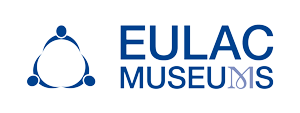Welcome to eulacmuseums.net – the website where you will discover the world of small, local museums and their communities in Europe, Latin America and the Caribbean!
We are a consortium of academics, museum professionals and policy makers working in Scotland, Portugal, Spain, France, Peru, Chile, Costa Rica and the West Indies who are committed to community museology making a difference in the world.
EU-LAC-MUSEUMS was conceived under the auspices of ICOM (the International Council of Museums: http://icom.museum) in 2014. It has received funding of 2,422,406 euro from Horizon2020 - the European Union’s biggest ever research and innovation programme - and will run from 2016-2020. The aim of our research is to provide a better understanding of the cultural, scientific and social dimension of the relationship between the EU and LAC, thus supporting the process of EU-CELAC cooperation outlined by the EU-CELAC Action Plan in defining a common vision for the years to come.
The project is Coordinated by the University of St Andrews in Scotland, under the auspices of the Museums, Galleries and Collections Institute in the School of Art History [https://www.st-andrews.ac.uk/arthistory/research/mgci/]]. Dr Karen Brown is the Institute Director, and project Coordinator (This email address is being protected from spambots. You need JavaScript enabled to view it.)
What is our Research About?
EU-LAC-MUSEUMS seeks to carry out out a comparative analysis of small to medium-sized rural museums and their communities in the EU and LAC regions, and to develop associated history and theory. The basis of the project is that community museums in Latin American and Caribbean countries in particular allow under-represented communities to stake a place in history, as well as contributing to environmental sustainability and community empowerment. Over the next 4 years researchers will investigate how these institutions can inform museum practice, particularly for remote and island locations. Museums involved include Ceumannan - Skye Ecomuseum in Scotland, and the Rey Curré Museo Comunitario in Costa Rica, run by the native Boruca people. Both are open-air museums encouraging visitors to explore the natural landscape and traditional structures. Here, young people will work together to carry out oral history projects with community elders, and become young curators of a virtual exhibition on the theme of societal change.
Museums hold an unequalled responsibility to communicate the shared history and “cultural, political and economic ties” between Europe, Latin America and the Caribbean. Museums have enormous capacity to reach all levels of community, from towns to remote villages, and can be neutral spaces for building social cohesion and reconciliation in a variety of contexts. By focusing on the theme of Museums and Community: Concepts, Experiences, and Sustainability in Europe, Latin America and the Caribbean, EU-LAC-MUSEUMS will create a common vision for sustainable, small to medium-sized local and regional museums and their communities, and reinforce mutual understanding and cooperation between regions.
Museum research stands out from other areas of social, scientific and cultural EU-LAC investigation by its natural engagement with the EU-CELAC themes, and project partners are international museum experts wishing to pursue this bi-regional research and exchange knowledge. Overcoming societal challenges as they relate to our museums and their communities, through the mediation of ICOM networks and museum leaders we will create parity of esteem and sustainable dialogue in order to research our tangible and intangible heritage, and share it with the world.
Our plan of action falls into the following four areas of EU-CELAC enquiry:
a) Technology and Innovation for Bi-Regional Integration
b) Museums for Social Inclusion and Cohesion
c) Fostering Sustainable Community Museums
d) Exhibiting Migration and Gender

